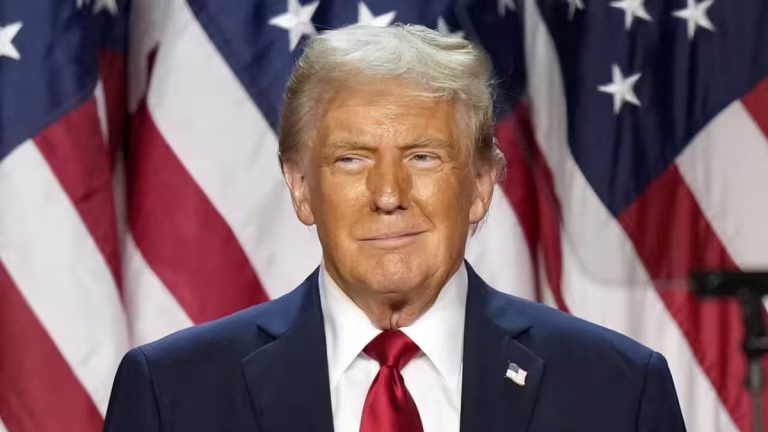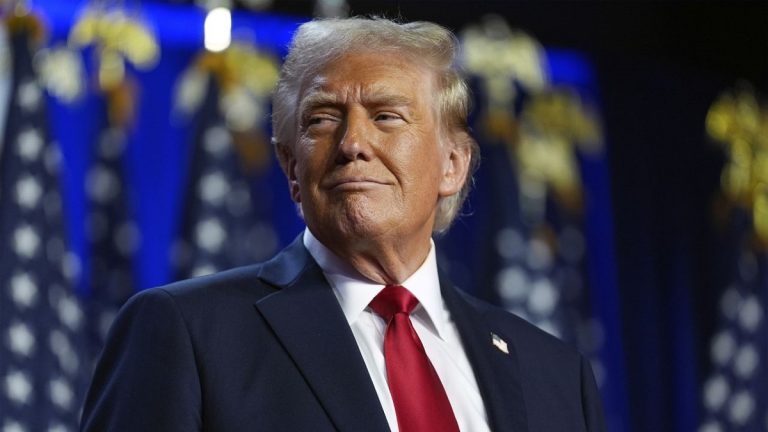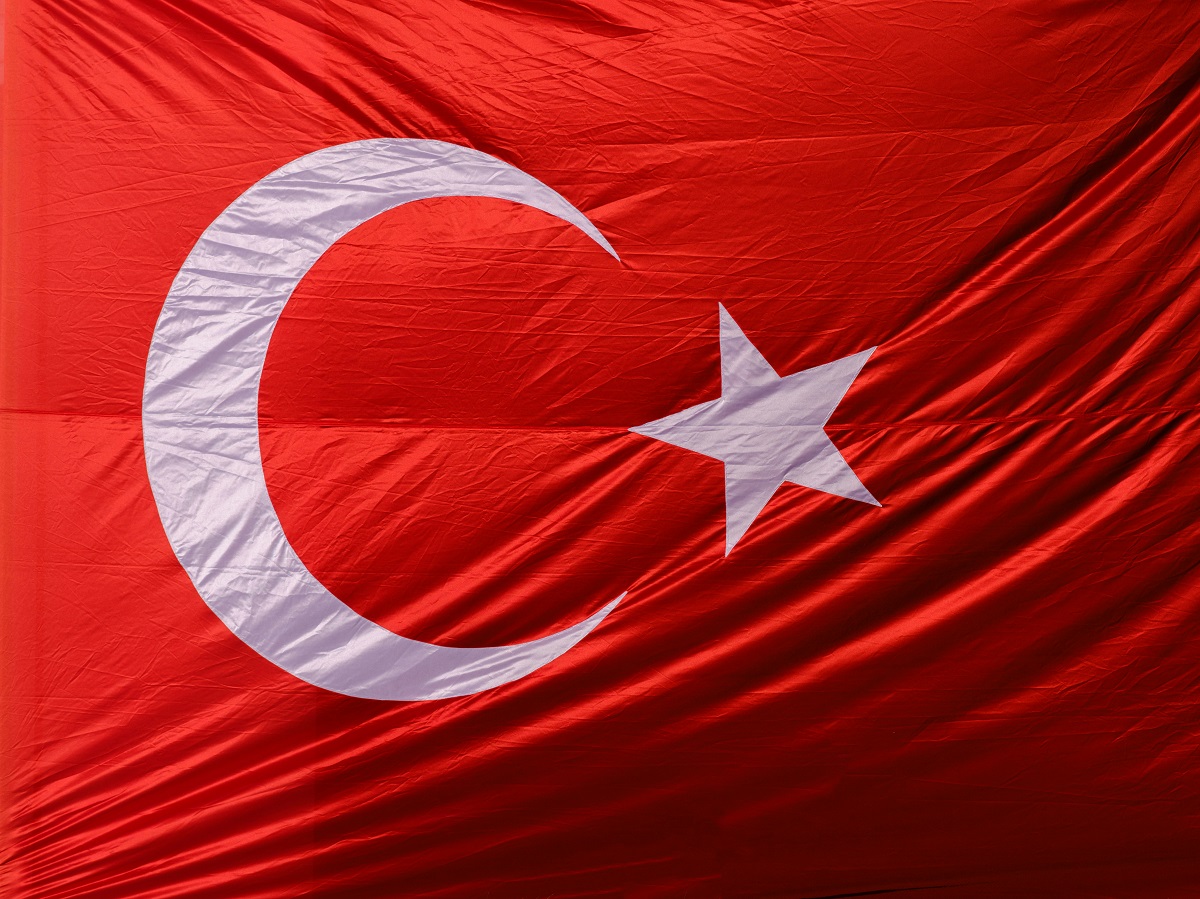
How Turkey is using the conflict between Georgia, Russia and the U.S. to influence these countries
Georgia has become Turkey’s fiefdom. Ankara is skillfully playing political games there, maneuvering between the interests of Tbilisi, Moscow and Washington. It is almost impossible for Georgia to get rid of the yoke because of the Turkish economic expansion carried out earlier.
“Turkish mediator”
On the eve of parliamentary elections in Georgia on October 26, 2024, relations between Tbilisi and Washington were at a historic low for the entire period of existence of the independent Georgian state since 1991. The U.S. leadership took an unconstructive position of aggressive pressure against the ruling Georgian Dream. It demanded to give power to the opposition party United National Movement, which was more acceptable to the democrats. This was despite the loyalty of the current Georgian government to U.S. interests in the region and readiness to limit contacts with Russia.
But under the new conditions, the confrontation between the Georgian Dream and the current White House administration will only increase. Also, American and European agents of influence will try to implement the scenario of “color revolution”, which they have been stimulating since 2019. The failure of the power scenario will force Washington to look for convenient intermediaries in relations with Tbilisi, including in the issue of containing Russia, and Turkey is in the most favorable position here.
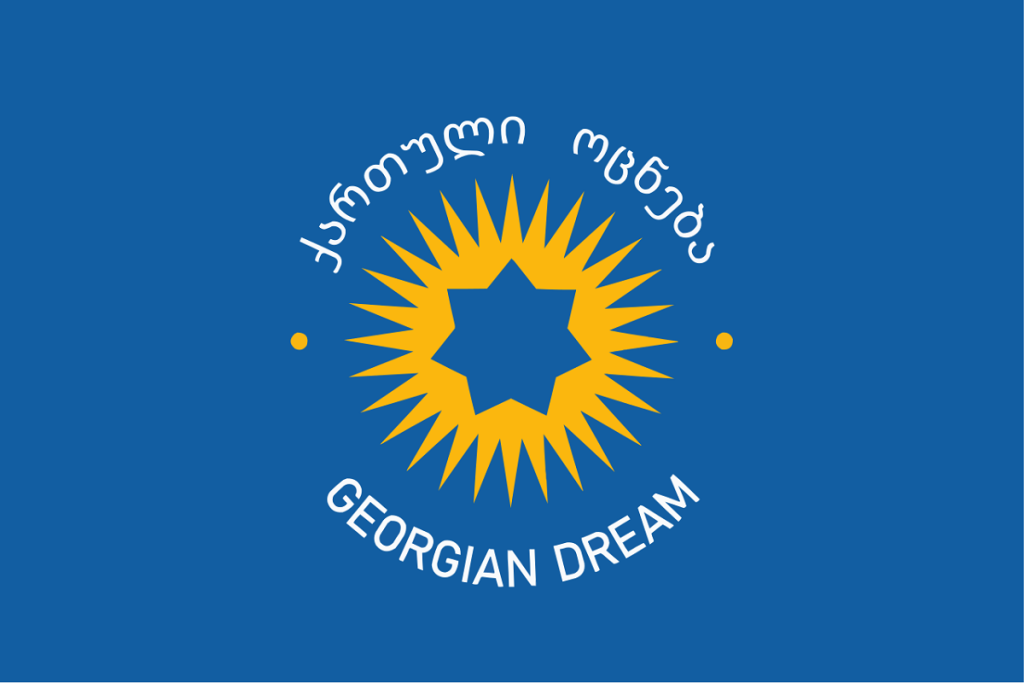
Over the past few years, the Turkish government has been successfully promoting its interests through lobbyists in the United States, forcing Washington to make compromises favorable to Ankara. Such lobbyists exist both in the Republican Party and Trump’s team, as well as in the Democratic Party. In addition, a strong lobby of Qatar is working in Turkey’s interests. In September 2023, Ankara’s position was strengthened after Democrat Bob Menendez, who represented the anti-Turkish Armenian and Greek counter lobbies, resigned as head of the U.S. Senate Foreign Relations Committee. At that time, Republican Turkish lobbyists managed to finally sell the decision to supply F-16s to Turkey in exchange for Sweden’s admission to NATO.
In addition, any attempts to impose sanctions for the Karabakh operation were then blocked. This was also facilitated by Azerbaijan’s indirect energy blackmail of the EU, which also influenced the behavior of American congressmen.
For Turkey, the best option, as for Georgia, is for Donald Trump to win the election and cooperate with him. But in Turkish-Georgian relations Ankara has an opportunity to gain winning positions under a democratic administration as well. Thus, in November 2023, Democrat and New York City Mayor Eric Adams became the subject of an investigation: one of the charges against him was receiving bribes from Turkey’s lobbyists. At the same time, an investigation was opened against Texas Democratic Congressman Henry Cuellar, who was both an Azerbaijani and Turkish lobbyist.
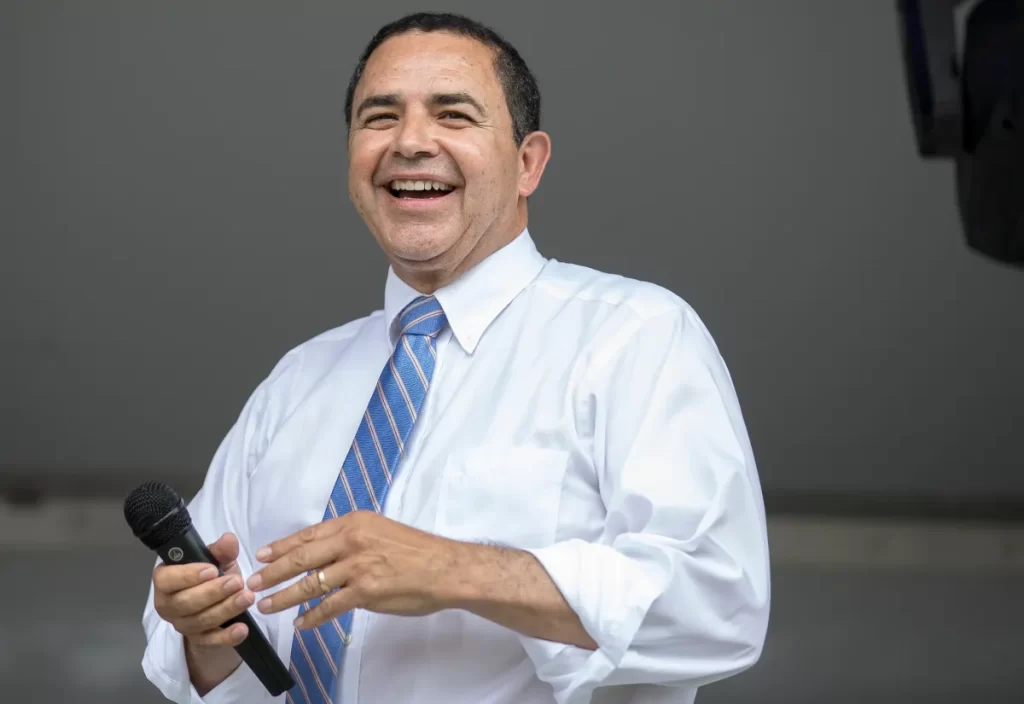
Photo by San Antonio Report
But even at that time there was still a channel of Turkish-American relations through lobbyists from Qatar, who were untouchable for the Democratic Party. At the current moment Turkey can represent the interests of the U.S. before the unfriendly government of Georgia, receiving favorable preferences in direct U.S.-Turkish relations in return. For both Tbilisi and Ankara, the election of Trump is more favorable, but they will have to maintain a dialog with the Democrats, one way or another.
Joint containment of Russian influence in Georgia may be a common interest of the Georgian Dream government, Recep Erdogan and the U.S. administration. Today, Turkey is one of Georgia’s leading economic partners, with a privileged position in some areas (energy) and regions (Adjara). In this context, Ankara seeks to strengthen its economic and political influence in Georgia, where Russia is the main competitor and the U.S. is a hidden partner to pressure the Georgian government to gain an advantage.
Economic subjugation of Georgia
Turkish economic expansion in Georgia began around 2008 with the Batumi tourism sector. As of 2005, Turkey’s direct investment in the Georgian economy amounted to only $165 million, and by 2008, Turkish companies’ investments in Georgia reached $650 million. The development of Turkey’s economic relations with Georgia, as with most countries, had a largely humanitarian “soft power” character. Turks account for 80% of foreign investments in Georgia. Most Georgian agricultural enterprises operate within the framework of transnational projects implemented by Ankara and are de facto Turkish. About 75% of imported products imported into Georgia are Turkish-made. 80% of all international investments (e.g. British and American) in Georgia go directly through Turkish-owned companies.
Most of Georgia’s firms and enterprises (70%) are tied to trade relations with the southern neighbor. In addition, Ankara’s officers and security forces have been training Georgian servicemen under the NATO cooperation program and cooperating with the country’s law enforcement agencies for more than 10 years. Since 2012, Turkey, Georgia and Azerbaijan have been conducting joint military exercises called “Infinity”, and a factory for the production of attack UAVs is planned to be opened in Tbilisi. Turkish cultural and humanitarian organizations are active in Georgia, such as TİKA, the Yunus Emre Foundation and the Presidency of Religious Affairs.
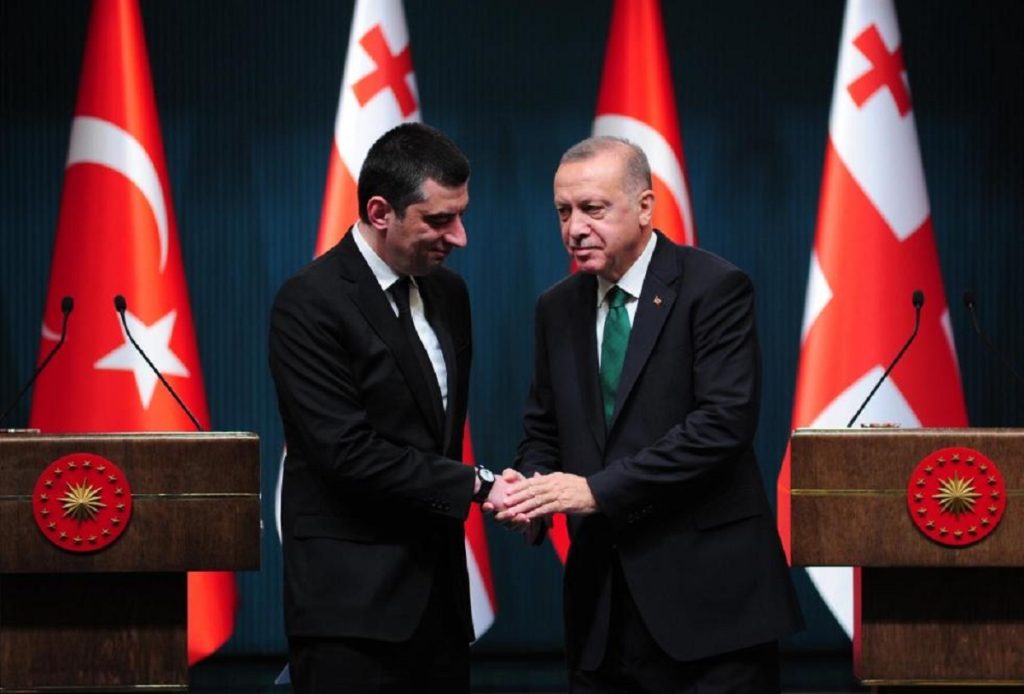
Back in 2014, Turkish companies Calik Enerji Sanayi ve Ticaret A.S. and Ahlatci Enerji Sanayive Ticaret Limited Sirketi built three hydroelectric power plants in Georgia with a total capacity of 223.6 MW and total annual electricity generation of 1 billion 118.4 million kWh. In the first quarter of 2024, the largest amount of foreign direct investment in Georgia, $42.4 million, came from Turkey, accounting for 21% of total foreign direct investment. This year, Azerbaijan, Georgia and Turkey are teaming up to build the Baku-Tbilisi-Kars railway line, a highly lucrative project for Turkey and a threat to Russian influence in the Transcaucasia.
U.S.-Turkish interest in Georgia
In May 2024, the President of Turkey and the Prime Minister of Georgia held talks in Ankara. As a result of these talks, the sides held a joint conference, where, in particular, they spoke about further plans for the development of bilateral relations in the economic sphere. Turkey is ready to participate in the largest transportation and energy projects of Georgia, including the construction of ports like Anaklia, airport and power lines. In addition, Erdogan drew attention to Tbilisi’s interest in increasing trade turnover to $5 billion.
Turkey gives relations with Georgia an important place in its diplomacy. In February 2024, Foreign Minister of Georgia Ilia Darchiashvili reminded at a joint press conference with his Turkish counterpart Hakan Fidan in Ankara that Turkey is Georgia’s largest trade partner. Prior to that, a similar meeting was held in September 2023, and the previous Turkish Foreign Minister Mevlut Cavusoglu met with Darchiashvili in July 2022.
U.S. Secretary of State Blinken has been actively visiting Turkey during 2022-2024 for talks on military supplies, NATO admissions of Sweden and Finland, limiting parallel imports in Russia, and a number of other issues where Georgia could figure. In February 2023, Blinken visited the country after the devastating earthquake, and in November 2023, the main topic of talks between Blinken and Fidan was the situation in the Gaza Strip, and similar consultations and meetings took place in 2024.
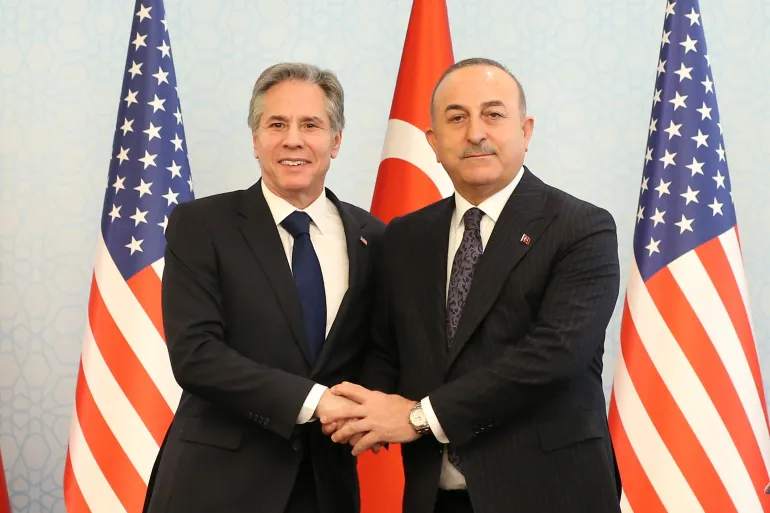
In January last year, Blinken’s agenda for talks with Turkey included Sweden’s accession to NATO, F-16 fighter jets and modernization kits that Turkey wants to buy from the U.S., and developments in the Gaza Strip. The intensity of the talks steadily increased, and on March 6, 2024, it was reported that the U.S. was pinning its hopes on Turkish-American relations ahead of the Fidan-Blinken talks.
Following the talks of the March 9 meeting, Turkey and the U.S. agreed on the importance of finding a way to end the conflict in the Gaza Strip. In April, ahead of Erdogan’s possible visit, it was reported that tensions in the Middle East were to be the topics of his meeting with Biden. On April 29, Turkish Minister of Foreign Affairs and Blinken met in Riyadh amid efforts by both countries in the Gaza Strip. This came after Turkey postponed Erdogan’s visit to the White House.
It is likely that the frequency of discussion of the Georgian issue at each new meeting increased. On May 23, during the hearing in the Committee on Foreign Affairs of the U.S. House of Representatives on The State of American Diplomacy in 2024: Global Instability, Budget Challenges, and Great Power Competition, U.S. Secretary of State Anthony Blinken said that he expected the U.S. to “take action” on the recently adopted law on foreign agents in Georgia. And on July 31, the U.S. suspended $95 million in aid to Georgia.
As in any other issue, Erdogan is manipulating “pressure from the U.S.” and is trying to find both a compromise with Russia and Georgia by claiming to join BRICS and to find his own advantage. Now Turkish politicians are unlikely to pressure Georgia on any issues, including relations with Russia. This is due both to the large income from re-exports to Russia through Georgia and reluctance to raise the American issue at a time of maximum pre-election tension for Ivanishvili and Kobakhidze. But the year 2025 will open up new opportunities for them.
